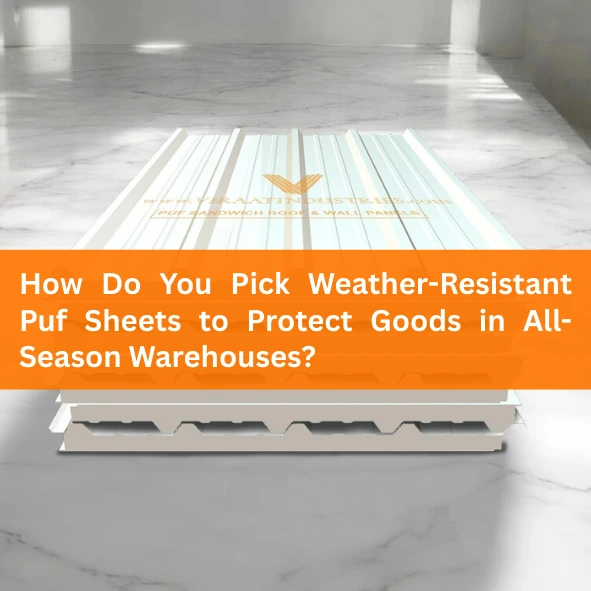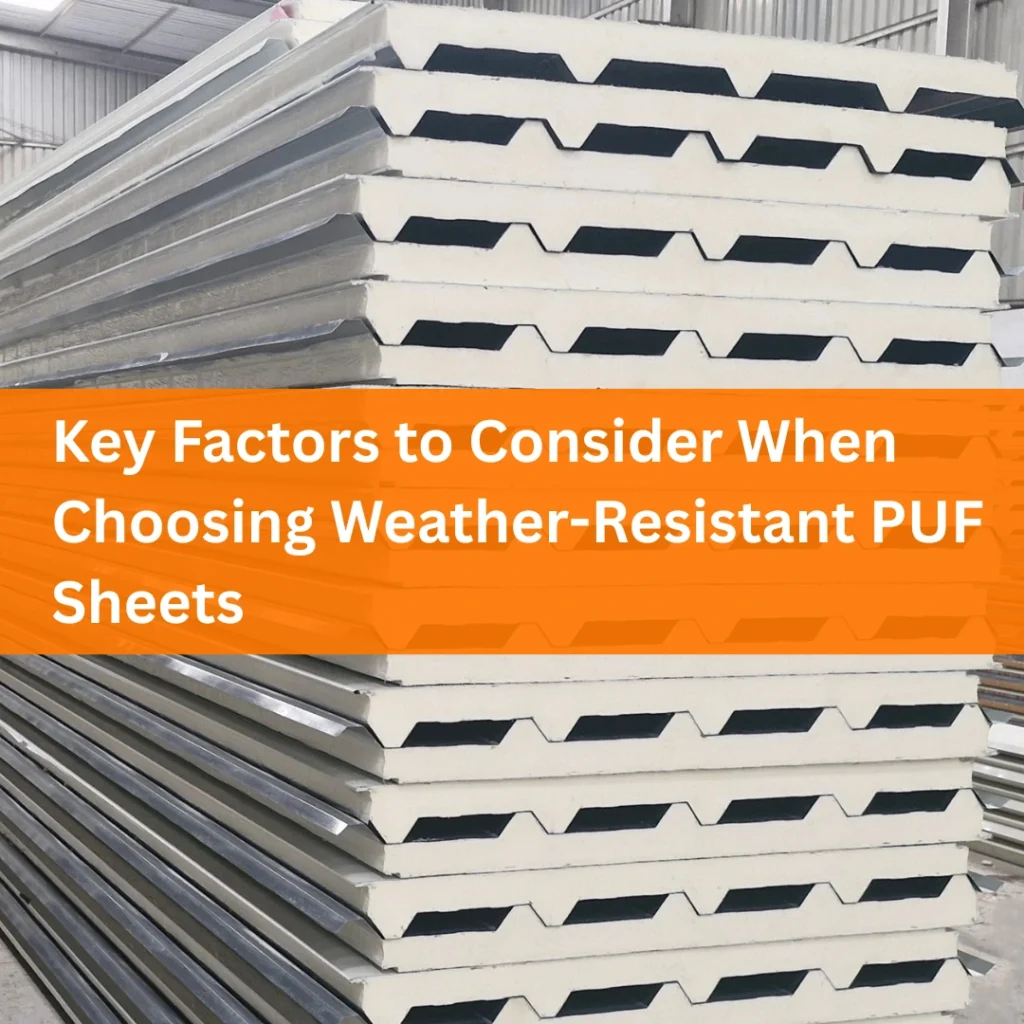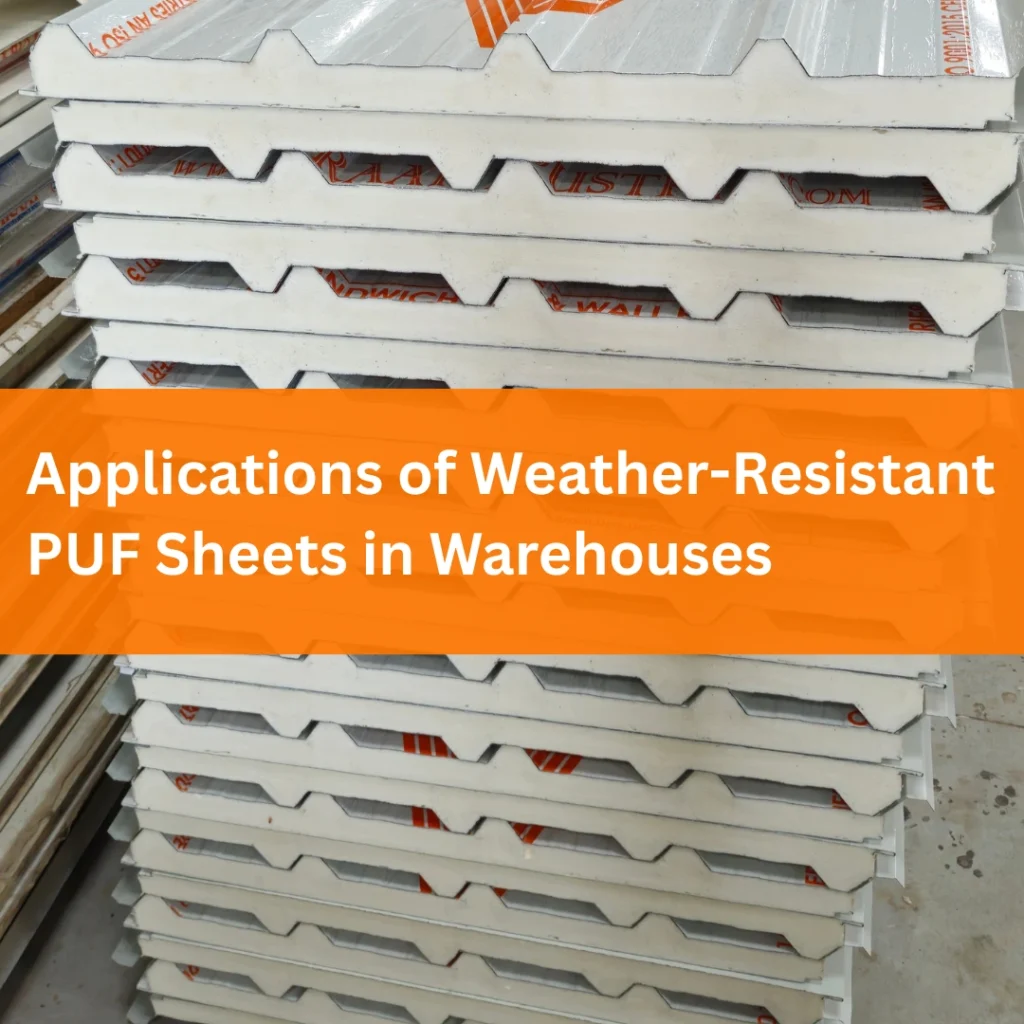
In modern warehousing, one of the main priorities is ensuring that stored goods remain protected from environmental elements like extreme heat, cold, humidity, and moisture. A critical solution for achieving this is selecting the right weather-resistant PUF sheets for insulation and roofing. These sheets offer outstanding protection against temperature fluctuations and moisture, making them perfect for all-season warehouses that store a variety of goods year-round.
When it comes to selecting PUF sheets for warehouses, you need to consider a range of factors to ensure that the insulation material will meet your needs and protect your products effectively. In this guide, we’ll go over the essential considerations for choosing the right PUF panels, how they can be beneficial in maintaining consistent temperatures, and tips for selecting the best ones for your warehouse.
Understanding PUF Sheets and Their Benefits
PUF stands for Polyurethane Foam, a material known for its high insulating properties. PUF sheets are used in various applications, such as refrigeration units, cold storage, and warehouse roofing. These sheets provide effective insulation, reduce heat transfer, and help maintain a stable internal environment, making them highly efficient for temperature-sensitive products.
The weather-resistant qualities of PUF sheets are an essential feature for all-season warehouses. PUF sheets are capable of withstanding both extreme heat and cold conditions, keeping your stored goods safe and in the right condition. Whether you are managing a cold storage facility, a food warehouse, or a pharmaceutical storage unit, PUF sheets are ideal for protecting your goods from adverse weather conditions.
Key Factors to Consider When Choosing Weather-Resistant PUF Sheets

Thermal Insulation Efficiency
The primary role of PUF panels is to provide thermal insulation. It’s important to choose sheets with a high R-value, which indicates the material’s resistance to heat flow. A higher R-value means better insulation and a more energy-efficient warehouse. For warehouses in regions with high temperature fluctuations, opt for high-density PUF panels that offer superior thermal performance.
Moisture Resistance
In regions where humidity is high or where goods are sensitive to moisture, it’s crucial to choose moisture-resistant PUF sheets. These sheets help to prevent condensation inside the warehouse, reducing the likelihood of mold and mildew formation. This is particularly important for goods like pharmaceuticals, electronics, and food products, which can be easily damaged by excess moisture.
Durability Against Weather Extremes
A key benefit of weather-resistant PUF sheets is their durability. Ensure that the PUF sheets you select are resistant to UV rays, rain, and snow. Some sheets come with a protective outer layer that shields the foam from environmental damage. If your warehouse is located in an area prone to high rainfall or severe storms, look for PUF panels with reinforced coatings for extra durability.
Fire Resistance
Another critical consideration is the fire-resistance of the PUF sheets. In warehouses storing flammable goods, it’s essential to choose fire-rated PUF panels. Fire-resistant PUF sheets prevent the spread of fire and can delay the ignition, giving you more time to take action in case of a fire. Always check for fire ratings when selecting the panels for your warehouse.
Cost-Effectiveness
While high-quality weather-resistant PUF sheets may come at a higher price, they can provide significant long-term savings. Insulation with PUF panels can reduce heating and cooling costs by maintaining stable internal temperatures. It’s essential to balance cost and quality to ensure that you’re getting the best value for your investment. Consider the lifecycle cost of the material, including maintenance and energy savings over time.
Ease of Installation
Another important factor is the ease of installation. Some PUF sheets are designed to be lightweight and easy to handle, which can reduce the time and labor costs associated with installation. Choose modular PUF panels that can be easily fitted into the warehouse structure without requiring major adjustments.
Thickness and Size
The thickness and size of the PUF sheets will depend on the insulation needs of your warehouse. For cold storage or temperature-sensitive goods, thicker panels may be necessary to achieve higher insulation. On the other hand, warehouses in regions with mild climates may require thinner panels.
Applications of Weather-Resistant PUF Sheets in Warehouses

Weather-resistant PUF sheets are versatile and suitable for a variety of applications, such as:
Roof Insulation: Protects the warehouse interior from external temperature changes.
Wall Panels: Provides continuous protection against environmental factors.
Cold Storage: Keeps perishable goods at optimal temperatures, preserving their quality.
Pre-Engineered Buildings: Perfect for warehouses that need quick and efficient construction with high insulation properties.
Choosing the Right Supplier for PUF Sheets
When selecting PUF sheets, always choose a reputable supplier who provides high-quality products. Ensure that the PUF sheets are manufactured according to industry standards, with certifications that guarantee their weather-resistant properties. A reliable supplier should also offer warranties, customer support, and installation services to ensure that the sheets perform optimally throughout their lifespan.
Conclusion
The choice of weather-resistant PUF sheets for all-season warehouses is crucial for ensuring the protection of goods and maintaining an optimal storage environment. By considering factors like thermal insulation, moisture resistance, durability, and cost-effectiveness, you can select the ideal PUF panels to meet your warehouse needs. With the right PUF sheets, you’ll not only protect your goods from harsh weather conditions but also enhance the overall energy efficiency and safety of your warehouse.
Frequently Asked Questions
PUF stands for Polyurethane Foam. PUF sheets (or panels) are insulating boards made by sandwiching a foam core between metal facings (often steel or aluminium). They reduce heat transfer, help maintain uniform internal temperatures, and block moisture ingress — making them ideal for warehouses that store temperature‐sensitive goods.
Warehouses face wide temperature swings, humidity, rain, UV exposure, and other environmental stressors. A PUF sheet that’s weather-resistant can better withstand these stressors over time, avoid degradation, prevent leaks or condensation, and therefore better protect stored goods.
The thickness depends on the level of insulation required. Warehouses in regions with extreme temperature swings or those storing perishable goods may require thicker panels (e.g., 50–100 mm or more). Less critical storage or milder climates may be suitable for thinner panels. Always match thickness to your required thermal resistance.
* Proven track record and references.
* Compliance with industry and safety standards.
* Proper certifications (e.g., fire, thermal, quality).
* Warranty, after-sales support, and service.
* Capability to deliver on time and help with installation.
* Technical assistance, testing, and quality control.



